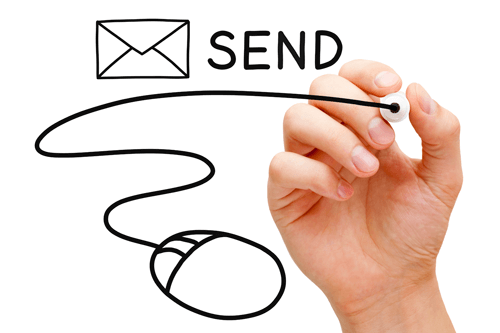Advisor Won’t Respond to Your Emails? Avoid Inbox Oblivion with these Seven Tips
Your graduate advisor is a human being (I have scientific evidence to confirm this…in an unpublished manuscript) and as is common for human beings, they tend to avoid things that are difficult or aversive. Your long, rambling, obsequious, and convoluted emails with statements disguised as questions and vice-versa qualify as both difficult and aversive to address, and so will be avoided.
There are a few tricks to dealing with advisor communications and they are presented below. The following is best if read with a French accent (a la Jacques Cousteau),
or at least like the honey-badger guy.
To attain the 12 pt. buck of graduate school, the reasonably-timed-reply from your advisor, you first need to understand the species you are tracking. The graduate advisor is a curious creature, simultaneously cunning and forgetful. Typically found in its natural habitat, the office, it can also be spotted circling a caffeinated watering hole or occasionally, cornering and boring an entire roomful of its helpless prey, the species known as undergraduate vulgaris. While in the office, it is not uncommon to observe the graduate advisor operating a computer. This behavior can be identified by the distinctive arrhythmic clacking sound it produces. Discovery of this behavior has led to a contradiction in the previously held belief that, if provided with a means of rapid communication, the graduate advisor would respond more rapidly (also known as the “I Sent it to You 11 Days Ago” Paradox). While yet to be confirmed scientifically, some anecdotal reports have surfaced suggesting it may be possible to elicit a response from the wily advisor. Read below for details:
[at this point, you may return to reading without a French accent]
What you want to do is create an association in your advisor’s mind between your emails and a sense of clarity, necessity, and simplicity. Make it easy on your advisor. If you do this, your emails won’t be avoided and pushed down the inbox into eventual obscurity. How do you do this? By writing an email that is organized, streamlined, and as easy as possible to answer.
But, before sending another email, have a conversation and ask how your advisor would like to be contacted. Something like this:
“I know some people prefer using email for communication and I know other people don’t like it. Would you prefer, in general, that I email you when I have questions, etc. or if I would like to schedule a meeting, or would it be better for you if I dropped by your office with quick questions?”
“Also, for the occasions when I do email you, if I don’t hear back from you is it okay if I contact you again how long should I wait?”
By asking these questions, you will know the best way to contact your advisor and you’ll feel more comfortable following up afterward. Often, a quick reminder is all it takes to put an almost-forgotten email back on top of the priority list. So how to write an email that is less likely to be ignored in the first place?
Tip 1: Skip all unnecessary greetings (“How are you doing?”), unneeded information (“I was walking my dog yesterday and it got me thinking about that project…”), and even unnecessary words (“In order to think about considering adding Factor B…” can be shortened to, “Adding Factor B requires…”).
Tip 2: Spend some time writing/rewriting your question(s) so that they very clearly ask the question (or make the request) that you want.
Tip 3: Use bullet points. Each bullet should contain the relevant information and the exact question you need answered.
Tip 4: Do everything you can to include all the questions you need answered/information you need to convey in a SINGLE email. This is just like how writing a single check for a consolidated student loan payment is easier than writing several checks to different lenders; writing a single email is just another way of making it easy for your advisor to reply.
Tip 5: This tip goes for more than just your advisor- if an email doesn’t need a response, don’t send one. You want every email your advisor receives from you to be associated with important content. I can’t think of very many people, outside your immediate family, that want to receive an email from you that says nothing more than, “Okay” or “Thanks again!” If you really want to show your appreciation, say “Thank you” the first time around don’t clutter the inbox with superfluous emails.
Tip 6: Specifically mention any deadlines and what course of action you intend to take if you do not hear back by a certain date. For example, “The grant application is due December 1st so if I haven’t heard back from you by November 15th, I’ll re-send this email to you as a reminder.” Or, “The grant application is due December 1st so if I haven’t heard back from you by November 15th, I’ll drop by your office for a minute so we can talk about it.” Including this message will help you feel more comfortable sending the email again or stopping by your advisor’s office, should you have to, because you have already mentioned that you would. Don’t worry, if your advisor has a problem with you re-sending the email or dropping by, they’ll let you know what they would like for you to do instead.
Tip 7: Seek out other sources of information (e.g., fellow graduate students, textbooks, other professors, the Google) for topics of inquiry that don’t have to be addressed by your advisor. Remember, your advisor can’t not respond to the email you don’t send!


0 comments